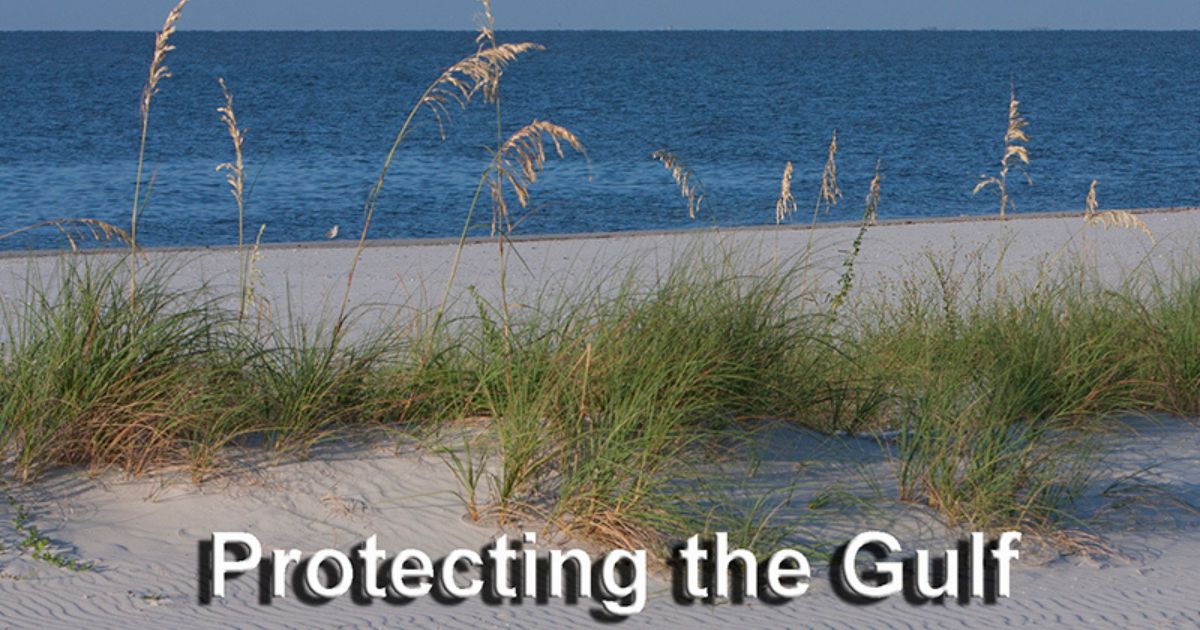The U.S. Environmental Protection Agency (EPA) announced over $11 million in grant funding for projects promoting a Healthy and Resilient Gulf of Mexico watershed.
These awards will improve water quality, habitat, community resilience, and environmental education in the Gulf of Mexico watershed. A total of 26 projects were awarded in three EPA regions (Region 4: 14 projects, Region 6: 11 projects, and Region 7: one project).
“EPA is very excited to recognize all of the projects across the Southeast promoting a healthy and resilient Gulf Coast for this year,” said EPA Region 4 Administrator Daniel Blackman. “From advanced contaminant tracking in Coastal Alabama to pollution source reduction at public places in Tennessee, these projects will go a long way toward improving community health and the environment across the Gulf of Mexico watershed.”
“We’re proud to recognize the Mississippi River Cities and Towns Initiative’s important efforts to increase water quality along the entire Mississippi River corridor by reducing pollution,” said EPA Region 7 Administrator Meg McCollister. “EPA’s decision to expand the Gulf of Mexico watershed to include our Region 7 states is a critical step to tackling the issue of marine litter. The community-driven work to reduce trash that will be supported by this grant will positively affect not only our local Midwestern environments, but also downstream communities all the way to the Gulf of Mexico.”
2022 Promoting Healthy & Resilient Gulf of Mexico Projects:
Region 4
Alabama
- University of Alabama $480,011 - Investigating sources of fecal pollution in the Mobile River Basin
- University of South Alabama $498,144 - Advanced microbial source tracking to inform community health in coastal
Alabama
- The Nature Conservancy $499,993 - Mapping Bayou La Batre Stormwater for Community Resilience
- The Nature Conservancy $499,914 - Building the Northern Gulf's Transportation Hub Resilience
Florida
- University of South Florida $446,442 - Improving Community Health through Microbial Source Tracking
- Eckerd College $499,638 - Communities Count: Single-Use Plastic Data to Change Policy
- City of Fort Myers $87,640 - City of Fort Myers Trash-Free Waters Program
- City of Tampa $500,000 - Trash Free Tampa Bay
- County of Santa Rosa $499,440 - Demonstration of innovative green stormwater infrastructure practices to address and improve impaired waters within the Pensacola Bay Watershed
Mississippi
- Mississippi State University $499,478 - Incentivizing and empowering communities to reduce litter
- MS Dept of Marine Resources $487,197 - Stormwater System Resilience through Green Infrastructure
- Mississippi State University $299,881 - Green & Resilient Infrastructure Technical Skills (GRITS) Program
- Mississippi State University $299,860 - Plan-It Marsh & Dunes: Advancing Career Skills & Outreach
Education
Tennessee
- Clean Memphis Organization $496,052 - Targeted Source Reduction: Public Schools & Public Places in Memphis
Region 6
Louisiana
- Louisiana State University (LSU) $497,659 - MST and UV-LEDs to Mitigate Fecal Contamination in LA Rivers
- LSU $499,582- A Multi-Pronged Approach to Trash Free Watersheds in Baton Rouge
- Sustaining Our Urban Landscape $501,723- Building Community Resilience in Pontchartrain Park
- Angela Chalk $342,856- Advancing GI in Communities of Color: The N Claiborne Zero Project
- Mary Queen of Viet Nam Community Development $496,646- Village De L’Est Environmental Resilience with Green Infrastructure
- EcoRise Youth Innovations $295,994- Building a Healthy, Resilient Louisiana
Texas
- Texas A&M University - Corpus Christi $494,348 - Improving Community Health: MST and QMRA on the Texas Coast
- University of Houston - Clear Lake $474,682 - Metagenomics for Microbial Source Tracking in Galveston Bay
- Coastal Bend Bays and Estuaries Program Inc. $406,377- Up2U PLUS: Using an Empowering Anti-litter Message to Prevent Dumping
- Lamar University $448,625- Conjunctive deployment of distributed stormwater infiltration and Bioretention infrastructures to mitigate flooding and related non-point source pollution in Beaumont and Port Arthur, Texas
- Texas A&M AgriLife Extension Service $297,079- Green Infrastructure for Texas High School Intern Program
Region 7
Missouri
- Mississippi Rivers Cities and Towns Initiative $499,757- A Community Driven Approach to Trash Free Waters in St. Louis
Background
The Healthy & Resilient Gulf of Mexico grants are administered by the U.S. EPA’s Gulf of Mexico Division. The Gulf of Mexico Division is a non-regulatory program of EPA founded to facilitate collaborative actions to protect, maintain, and restore the health and productivity of the Gulf of Mexico in ways consistent with the economic well-being of the region. To carry out its mission, the Gulf of Mexico Division continues to maintain and expand partnerships with state and federal agencies, federally recognized tribes, local governments and authorities, academia, regional businesses and industries, agricultural and environmental organizations, and individual citizens and communities.
For more information about the U.S. EPA Gulf of Mexico Division, click here.



